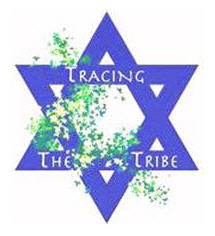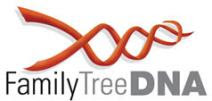Randall Belinfante was a bit baffled.The article touches on Tay-Sachs and Ashkenazi genetic testing, which of course has little bearing on Sephardic and Mizrahi Jewish communities and their descendants.
When he and his wife went to take blood tests in preparation for starting a family in 2003, he discovered that the screening included a panel of tests for Ashkenazic Jewish genetic disorders. But Belinfante is Sephardic.
“We told them at the time that we were not Ashkenazi, but they told us they don’t do testing for Sephardic diseases, just for Ashkenazi ones,” recalled Belinfante, who traces his ancestry to the Iberian Peninsula via the Balkans, Holland and England. “So they went ahead and did the Ashkenazi tests anyway.”
With a note of bemusement, Belinfante, who is the librarian and archivist at the New York-based American Sephardi Federation, added, “Surprisingly enough, they found we did not have any of the Ashkenazi Jewish diseases.”
But what about the others in the Jewish community? What about Sephardic Jews? Are they also susceptible to a unique group of genetic disorders rarely shared by other groups? Does a Sephardic couple planning on having children also need to be screened for certain diseases?The article quotes Rabbi Ellie Abadie, physician and director of Yeshiva University's Safra Institute of Sephardic Studies, who said, “There is no disease that you can call a Sephardic genetic disease."
University of Masschusetts Judaic and Near Eastern Studies Professor Aviva Ben-Ur said “Non-Ashkenazi Jews are collectively much more diverse than Ashkenazi Jews.” She authored the new book “Sephardic Jews in America: A Diasporic History” (NYU Press).
Hebrew University professor of human genetics, Dr. Joel Zlotogora - a Jewish population geneticist - said “You can’t say ‘Sephardic genetic diseases,’ because most of the disorders are specific to the community of birth. Moroccan Jews are different from Tunisian Jews and so on. For non-Ashkenazi Jews you have to look by country of birth.”
The term “Sephardic” itself often tends to obscure this diversity. At its root, the word refers to Jews who can trace their origins back to the Iberian Peninsula, but it is often used as a catchall label for any Jew who is simply not Ashkenazic. Although even many non-Ashkenazic Jews themselves may employ the label, it glosses over a diversity of communities stretching from the Balkans, to North Africa, to the Arab world, to the Caucasus and beyond. The genetic picture is not far behind.In Israel, non-Ashkenazi Jews are a much higher percentage of the population than in North America. Supposedly the medical community here is more in tune with this. However, when I asked my husband's primary physician about the Persian genetic conditions being tested for in Los Angeles, she seemed completely unaware of those connections to the Persian community.
The Israel Ministry of Health's genetics website lists disorders with separate lists for Ashkenazi Jews, as well as for Algerian, Libyan, Tunisian, Moroccan, Iraqi, Iranian, Syrian, Yemenite, Kurdish, Bukharan, Georgian, Indian, Ethiopian, Caucasian and Karaite Jews.
Some reasons for non-Ashkenazi disorders were the relative isolation of those communities and marriage customs, such as preferred first cousin marriages, which contributed to some disorders.
The World Sephardi Federation (WSF), in a 2001 survey, reported that non-Ashkenazim were 26% of world Jewry; in Israel, it is about 50%. The WSF estimates only 4.5% of North American Jews are non-Ashkenazi.
NOTE: An interesting twist that gives a different perspective on this is the IberianAshkenaz Project that Judy Simon and I co-administer at FamilyTreeDNA.com, showing that of the 140 participants, some 75% of Ashkenazim (with some indicators of Sephardic ancestry) have genetic matches with Hispanics and known Converso families. This means that it is possible that many more ostensible Ashkenazim actually have Sephardic roots (but do not have the oral history or other indicators), which could add to the information on Jewish genetic conditions. The sample is still small and larger numbers of participants might shed more information.
The story in The Forward again mentions the Iranian Jewish population-based program to screen Iranian Jews for four genetic disorders that occur with relative frequency in that community. See the separate Tracing the Tribe posting on that program.
As far as other programs, the American Sephardi Federation lists four diseases under “Sephardic Recessive Disorders,” and several Jewish genetic screening centers around the country list the same four disorders on their sites.
The diseases are beta-thalassemia; G6PD; familial Mediterranean fever (FMF), which causes recurrent fevers and rashes; and glycogen storage disease type III (GSD III), a severe metabolic disorder — are shared across several non-Ashkenazic communities in the Mediterranean basin and North Africa.New York University Medical Center's Human Genetics Program director Dr. Harry Ostrer, says the list is “incomplete.”
“There is a noticeable gap in the availability of testing for Ashkenazi and non-Ashkenazi Jews” in the United States, said Ostrer, who in 2007 initiated a mapping of the Jewish genome akin to the Human Genome Project called the Jewish HapMap Project. “We’re going to have to come to grips with it pretty soon.”According to the story, when a non-Ashkenazi Jew comes to the NYU genetics unit, the staff creates a panel based on the community of origin. For some conditions, said Ostrer, it is not possible to find an American laboratory to do the test.
The Forward, according to the story, conducted an informal poll of Jewish genetic screening centers and found that while they may provide genetic counseling for the disorders, they can't do the testing.
The Victor Center for Jewish Genetic Diseases at Philadelphia's Albert Einstein Medical Center told the Forward writer that they cannot do the testing. Its branches in Philly, Miami and Boston offer Ashkenazi screening at reduced rates but their lab cannot test for non-Ashkenazi disorders, which are sent out to commercial labs at much higher cost.
Ostrer says that "you can’t rely on family history. That’s the whole point of screening.” He and his colleagues find considerable interest in screening as he speaks with Syrian, Iranian, Bukharan and other non-Ashkenazic Jewish groups for the HapMap project. He hopes to begin offering tailored programs soon.
Read the complete article at the link above for more, which touches on cultural and societal issues of the Sephardic communities.
Tracing the Tribe is happy that these issues are being discussed in The Forward and elsewhere. Additional attention needs to be paid to these important genetic issues.





































No comments:
Post a Comment